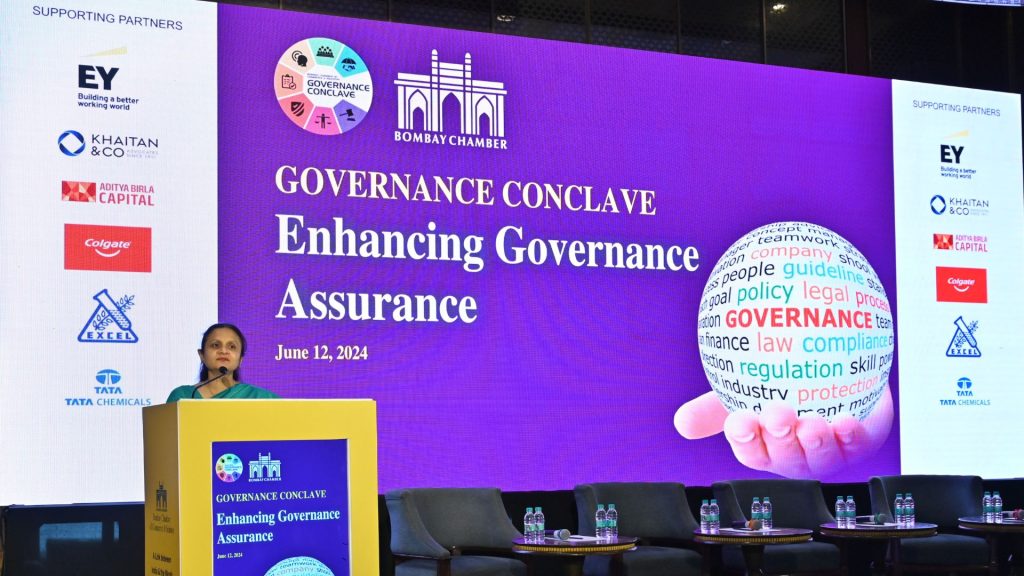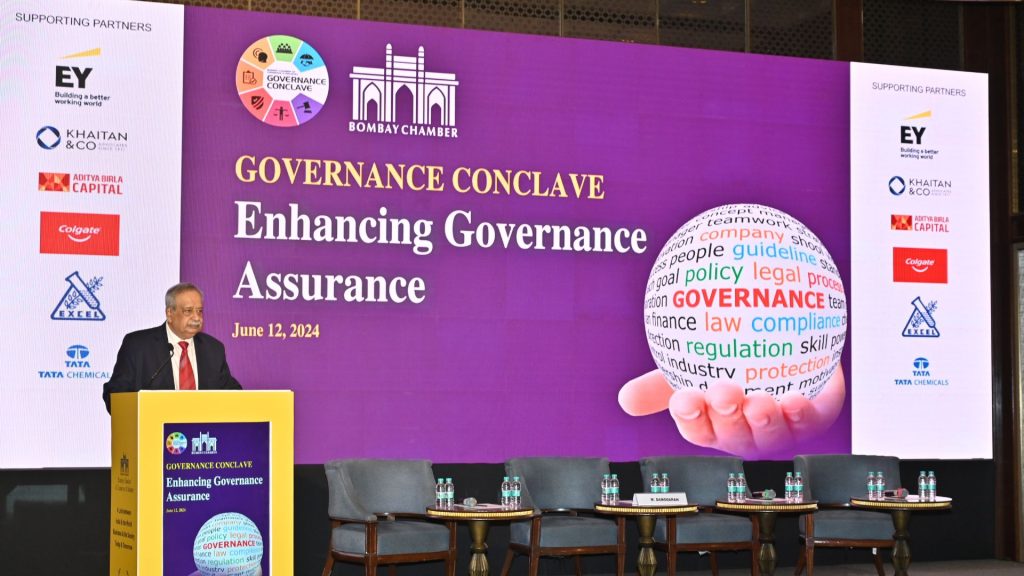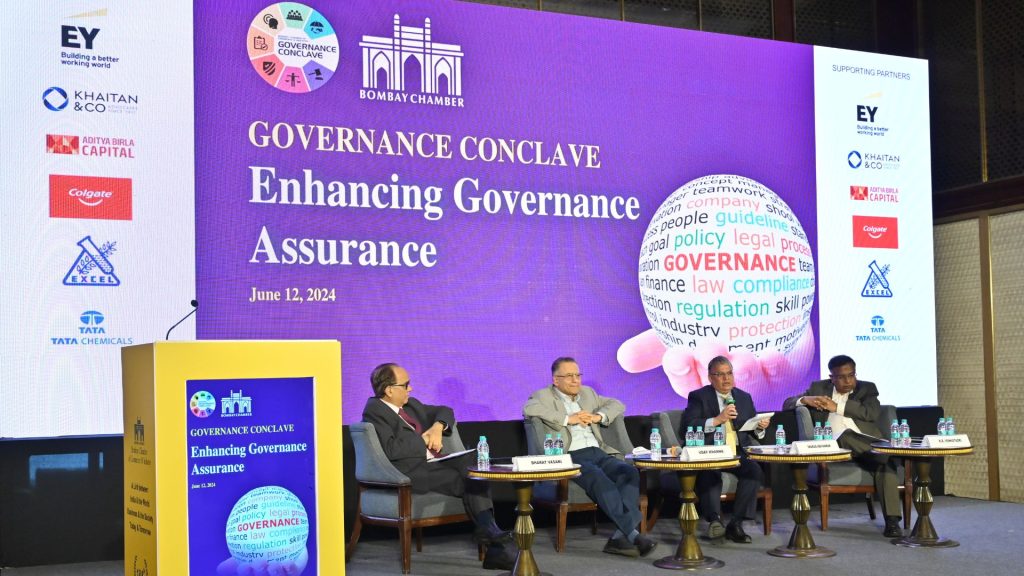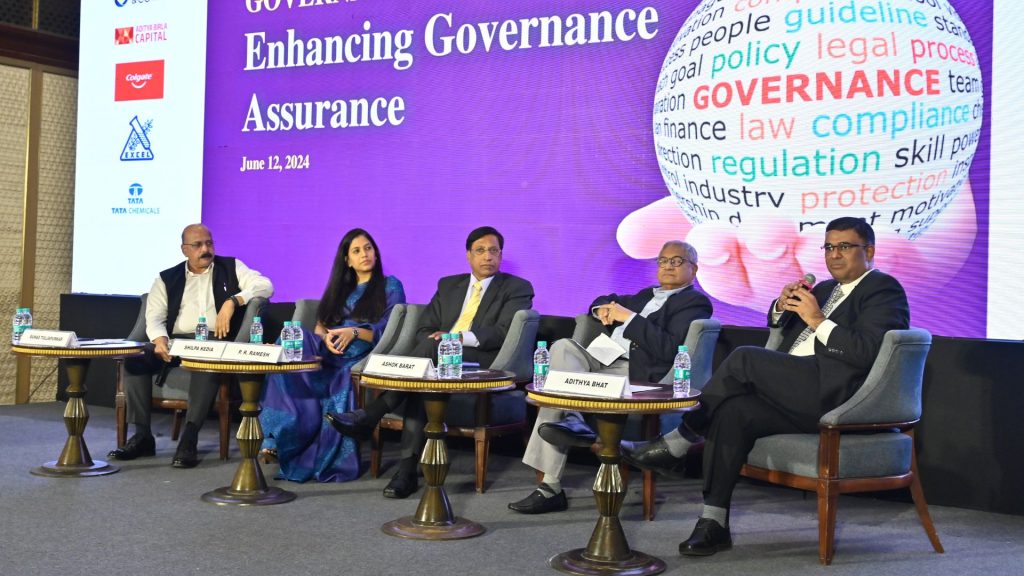Blog
Bombay Chamber’s Governance Conclave Highlights Way Forward for Ensuring
The Governance Conclave on ‘Enhancing Governance Assurance,’ organised by the Bombay Chamber, focused on the integration of a robust governance framework, a strong risk culture, clear strategic objectives, and reliable internal controls to ensure the growth of businesses. The Conclave was supported by Conclave supported by Ernst & Young LLP, Khaitan & Co., Aditya Birla Capital, Excel Industries, Colgate and Tata Chemicals.

Setting the theme for the Conclave, Pinky Mehta, President Designate of the Bombay Chamber and Chief Financial Officer at Aditya Birla Capital, underscored the importance of effective governance in today’s corporate landscape.

M. Damodaran, Chairperson of Excellence Enablers and former Chairman of SEBI, UTI, and IDBI, delivered the keynote address, focusing on the critical importance of corporate governance in contemporary business practices. Damodaran emphasised that the true challenge lies in effectively communicating governance principles and ensuring they are implemented beyond the confines of boardrooms. Highlighting the concept of excellence enablers, he spoke about how it involved doing the right things at the right time and in the right manner. This approach underpins sustainable business practices and builds trust with stakeholders, forming the bedrock of robust corporate governance. Corporate governance often becomes a focal point during times of uncertainty. Damodaran also pointed out that this is because governance is essential for maintaining integrity and trust in businesses, especially when other topics seem to have been exhausted.
Reflecting on the 2008 financial crisis in the U.S., Damodaran noted that the crisis underscored the consequences of poor governance. Key processes were overlooked, and those responsible for oversight failed to act diligently. This led to significant lapses in reporting and a subsequent loss of trust and economic stability. Enhancing governance assurance extends beyond mere compliance. Damodaran emphasised that governance should be viewed as a culture and a continuous improvement process. “How well are listed companies adhering to governance principles? There is a need to reinvent our understanding of governance to make it conducive to the ease of doing business.” Post-2008, there exists a degree of hypocrisy in governance practices, where laws became more complex but not necessarily more effective. He stated that the periodic review and updating of the statutory rules and regulations by removal of the obsolete and unwanted provisions will go a long way to facilitate ease of doing business

The first panel discussion, “Strengthening Governance through the Audit Committee,” was moderated by Bharat Vasani, Senior Advisor-Corporate Laws at Cyril Amarchand Mangaldas. The panellists included Uday Khanna, Independent Director on the Boards of Kotak Mahindra Bank, Pfizer, Castrol India, and Pidilite Industries; K.R. Venkatadri, Chief Commercial Officer at Tata Chemicals; and Sharad Abhyankar, Partner at Khaitan & Co. The discussion covered regulator expectations, the role of the Audit Committee in enhancing corporate governance, practical challenges, committee composition, and best practices for approving Related Party Transactions (RPTs).

The second panel discussion, “Role of Internal Audit in Assurance-Based Governance,” was moderated by Suhas Tuljapurkar, Founder Director, Legasis. The panel featured Shilpa Kedia, Group Finance Controller and Head of Investor Relations at HUL; P. R. Ramesh, Past President of the Bombay Chamber and Independent Director at Larsen & Toubro; Ashok Barat, Past President of the Bombay Chamber and Independent Director at Bata India; and Adithya Bhat, Partner, Risk Consulting at Ernst & Young LLP. They discussed the evolving role of internal audit, effective audit models for governance, and best practices in RPT, compliance, and executive director remuneration.








